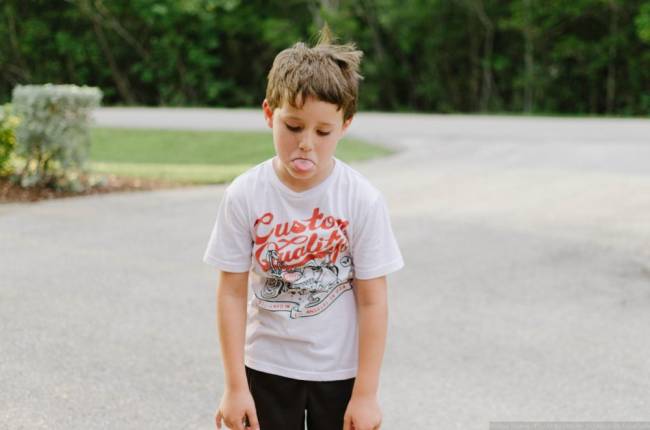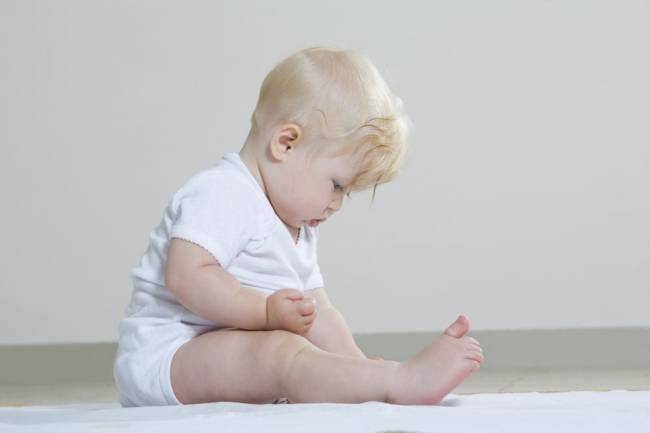Research has found that sleep loss in children can have a negative effect on their cognitive development and social and emotional wellbeing[1]. Daytime drowsiness and reduced performance at school[2] may be a sign of sleep deprivation and is something to be watchful of. Following an inadequate night’s sleep, a child is often irritable and more inclined to have upsets and accidents[3]

One of the problems with sleep deprivation is that it can have a knock-on effect on parents – as well as the child, parents may experience heightened levels of stress and irritability[4]. Increased stress and irritability could lead to bickering or greater conflict between parents, which over time can damage the couple relationship[5].
Child sleep disorders can take many forms including[6]:
- Sleep onset difficulties
- Repeated night-time waking
- Early morning waking
- Sleep apnoea
- Periodic limb movement disorder
- Excessive daytime sleepiness
- Anomalous and disrupted sleep-wake cycles
- Parasomnias including nightmares, night terrors, sleep talking and sleepwalking.
In one study most parents reported that their child’s sleep difficulties had been present for at least a year suggesting that these sleep behaviours may have become entrenched and, therefore more resistant to change[7].

Research suggests there are some things parents can try to improve their child’s sleeping. For families who have had a new baby, it may be helpful to try positive sleep routines from birth in order to prevent any issues from happening down the line. Parents wishing to tackle their child’s sleep problems can initially try a number of things. However, please note you should always consult a GP or relevant health practitioner before attempting to change a child’s sleeping habits. Parents should also discuss and agree an approach with their partner beforehand, in order to avoid conflict and to ensure consistency of approach. Going through a sleep habits checklist may be a helpful starting point for parents. Some suggested actions from an adapted sleep checklist[8] include:
- Put your baby to bed drowsy but not asleep
- Establish a regular bedtime routine
- Encourage your child to drink milk before bedtime (NB always check with a GP first)
- Keep the bedroom temperature around 18C
- Reduce light in the bedroom
- Try to phase out daytime naps as your child reaches their third birthday
- Limit television viewing in the child’s bedroom at bedtime
- Cut out fizzy drinks at bedtime
Actions to avoid include:
- Confusing your child by bringing your child back into the living area once the bedtime routine is completed
- Sending your child to bed as a punishment; their bedroom needs to be a calm and happy place
- Encouraging any stimulating activity or exercise in the hour before bedtime
It is important to note that regardless of what techniques are used; improvements in a child’s sleep may take some time. Research suggests that after changes, improvements in children’s sleep often occurred gradually, and for some parents their child’s sleep problems became more challenging before improvements were reported[9]. An initial resistance to changes in parenting practices (e.g. a new bedtime routine, withdrawal of attention during the night) is quite common[10]. Practitioners suggest that the success of a behavioural intervention partially depends on parents having the emotional and physical resources to endure a short-term worsening of the problem[11]. In other words, parents will need to agree their approach, and be aware that they may need to support and encourage each other along the way.
It is also important to note that some approaches may be unusable or may fail for a number of reasons[12], such as:
- Parents may be willing to ignore crying but the neighbours complain
- There is often a transient initial increase in the rate of the undesirable behaviour – the so-called extinction burst. This may make the programme inappropriate or dangerous (for example, it may be considered unsafe to risk a seriously head-banging child increasing the behaviour, however temporarily).
- It may take too long; the parents give up ignoring their child’s crying and go and comfort them, thereby conveying the message that longer periods of crying are worthwhile to get parental attention, even if the response is not immediate.
Discuss together an approach that may best suit your parenting style to combat the issue of sleep deprivation. Not only will the right approach help your little one, it will also prevent unnecessary stress on you and your couple relationship.
Feel the need to talk this through further? You could start by talking to us on our online forum, from the 28,000 dads on forum – you’ll probably come across someone who has been in your shoes but a little further on in the journey to be able to offer you support.
Want to read some of our related article on this subject? Take a look at these…
HOW DADS AFFECT THEIR NEWBORN BABIES
References
[1] Stores, G. (2001). A clinical guide to sleep disorders in children and adolescents. Cambridge University Press.
[2] Meijer, A. (2008). Chronic sleep reduction, functioning at school and school achievement in preadolescents. Journal of sleep research, 17(4), 395-405.
[3] Ferber, R. (2006). Solve Your Child’s Sleep Problems: Revised Edition: New, Revised. Simon and Schuster.
[4] Tietze, A. L., Zernikow, B., Michel, E., & Blankenburg, M. (2014). Sleep disturbances in children, adolescents, and young adults with severe psychomotor impairment: impact on parental quality of life and sleep. Developmental Medicine & Child Neurology, 56(12), 1187-1193.
[5] Driver, J. L., & Gottman, J. M. (2004). Daily marital interactions and positive affect during marital conflict among newlywed couples. Family process, 43(3), 301-314.
[6] Turk, J. (2010). Sleep disorders in children and adolescents with learning disabilities and their management. Advances in Mental Health and Learning Disabilities, 4(1), 50-59.
[7] Kuhn, B. R., & Elliott, A. J. (2003). Treatment efficacy in behavioral pediatric sleep medicine. Journal of psychosomatic research, 54(6), 587-597.
[8] Sutton, J. (2011). Promoting effective interventions for sleep problems. Nursing children and young people, 23(8), 14.
[9] Stuttard, L., Beresford, B., Clarke, S., Beecham, J., & Curtis, J. (2015). A preliminary investigation into the effectiveness of a group-delivered sleep management intervention for parents of children with intellectual disabilities. Journal of Intellectual Disabilities, 1744629515576610.
[10] Stuttard, L., Beresford, B., Clarke, S., Beecham, J., & Curtis, J. (2015). A preliminary investigation into the effectiveness of a group-delivered sleep management intervention for parents of children with intellectual disabilities. Journal of Intellectual Disabilities, 1744629515576610.
[11] Beresford B., Stuttard L., Clarke S., et al. (2012). Managing Behaviour and Sleep Problems in Disabled Children: An Investigation into the Effectiveness and Costs of Parent-Training Interventions. London: Department for Education.
[12] Turk, J. (2010). Sleep disorders in children and adolescents with learning disabilities and their management. Advances in Mental Health and Learning Disabilities, 4(1), 50-59.







